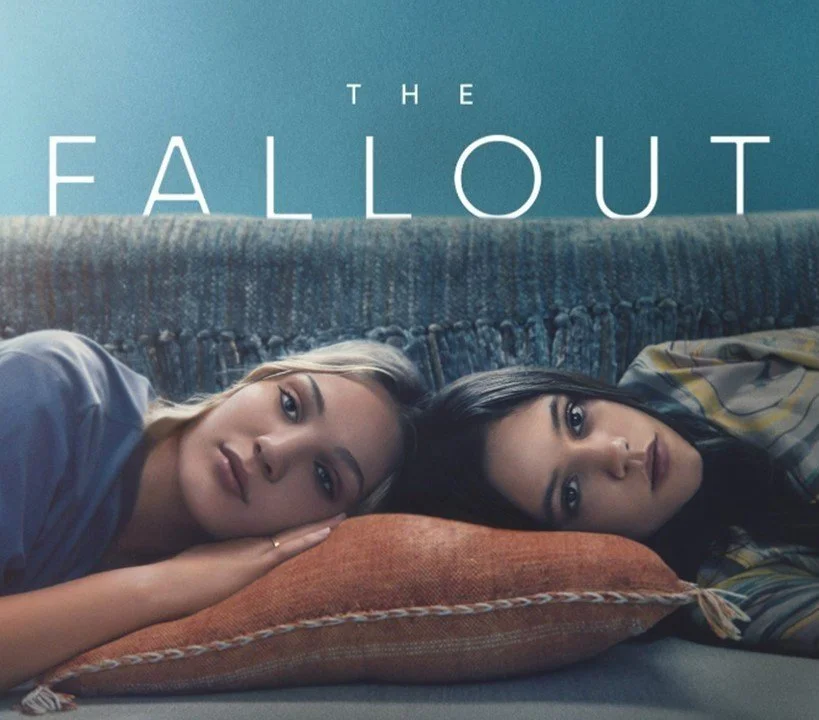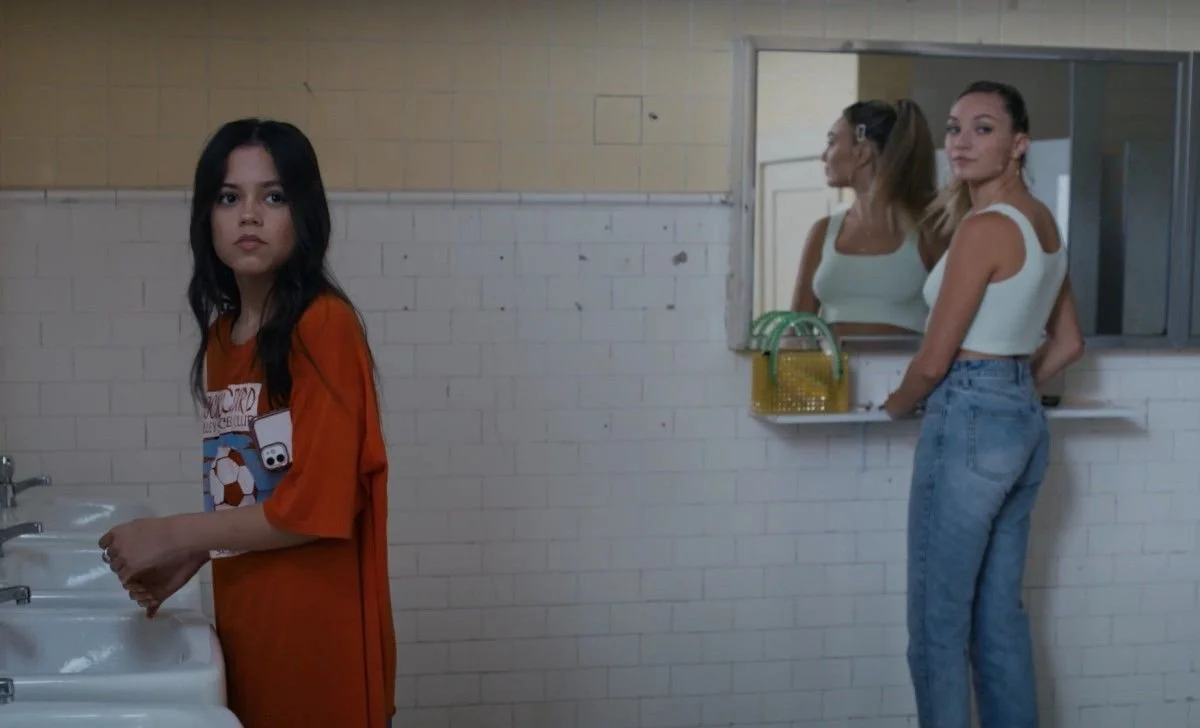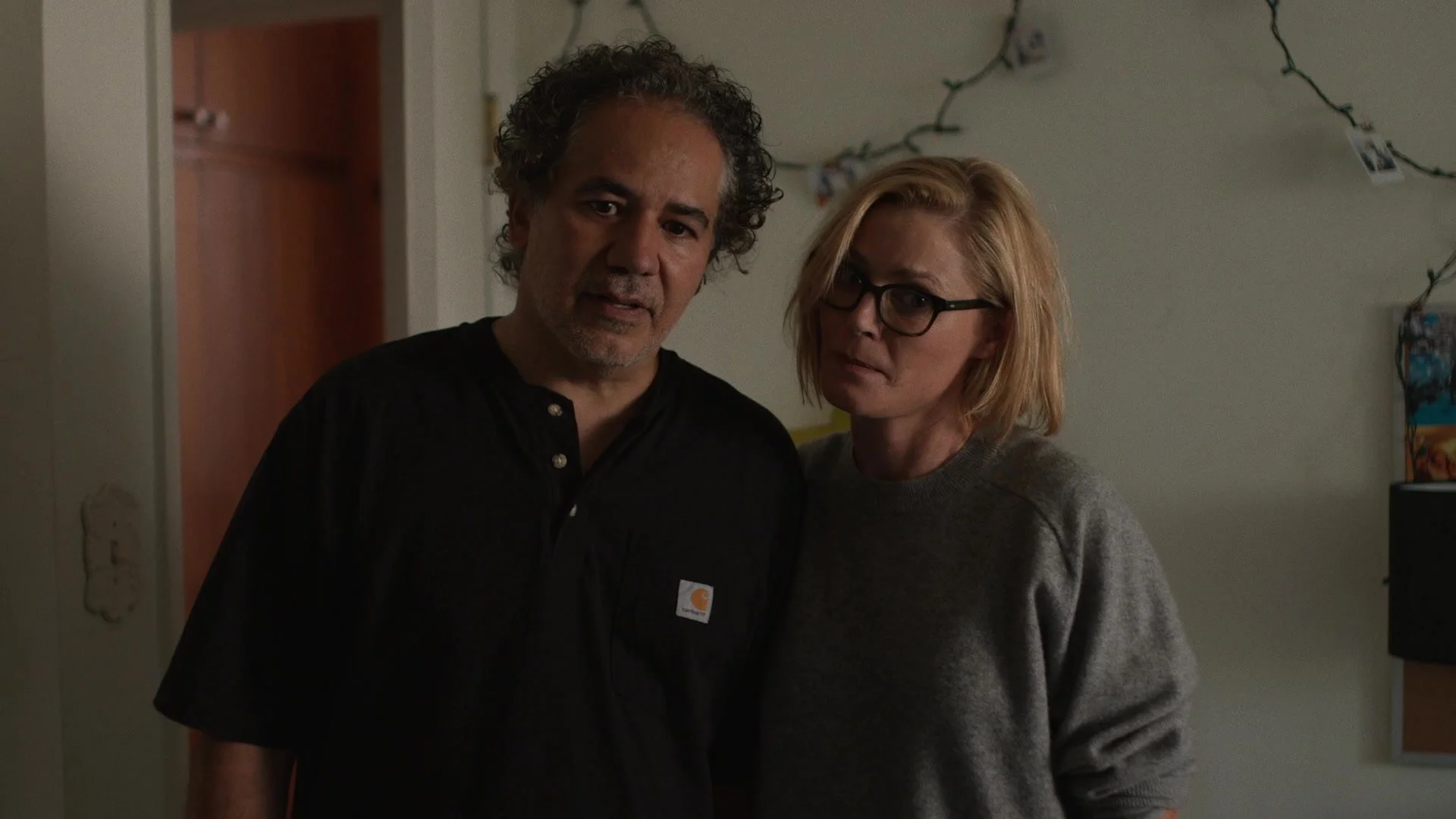‘The Fallout’ Review: Impeccable Performances Saves Superficial Drama
While great performances elevate The Fallout, its facile and superficial plot falters the movie from being anything more than a semi-decent actors’ showcase.
Actress/singer Megan Park’s directorial debut, “The Fallout”, is not an easy film to watch. It chronicles high school student Vada (Jenna Ortega)’s journey through grief and trauma as she grapples with the after-effects of a shooting at her school. The events have led her to become depressed and isolated from her parents (Julie Bowen & John Ortiz) and sister (Lumi Pollack). At the same time, her best friend, Nick (Will Ropp), turns his anxiety into activism, going on diverse news channels to talk about safer schools to protect students from the danger of mass shootings. Vada prefers not to do anything and spends most of her time with Mia (Maddie Ziegler), a classmate she hid in a bathroom stall when the shooting occurred.
In representing the school shooting, Park makes the admirable decision never to show the assailant and victims being killed. Unfortunately, most films that visually represent shootings do it exploitatively and will, in some cases, focus on the perpetrator when they should never be the subject of their movies. Denis Villeneuve’s ‘Polytechnique,’ for example, has a scene in which the killer randomly shoots at people in a section where most students are regrouped. We see people being killed students running away from the scene in total panic, all the while the camera focuses on the killer murdering women in cold blood. It’s exploitative and was widely criticized at the time as being “cinematic butchery,” glorifying the real-life victims of the 1989 Polytechnique Massacre and its families
Park never reverts to exploitation. The movie’s focus is not on the victims or the shooter. Instead, it focuses on the survivors who now have to grapple with extreme trauma, having experienced a day nobody should ever have witnessed in their lives. They’ve lost classmates, friends, and in some cases, family members because nothing was done to prevent school shootings in the first place, an event that tragically happens one-too-many times in the United States. To focus on the survivors of the event without glorifying the victims and their families gives a new outlook on exploring trauma and allow for a movie focused on the actors and how well they can juggle with different emotions.
Unfortunately, Park is never interested in exploring Vada’s traumatic journey of self-discovery aside from the superficially obvious: she has nightmares, night sweats, doesn’t want to talk to anyone, and sleeps for fourteen hours a day. The audience observes her doing these things and talks about the shooting with Mia, Nick, and Quinton (Niles Fitch). But then Vada, without explanation, starts to numb herself from reality through drugs and alcohol, tripping on ecstasy during a class. This scene tries to be funny, with Vada chomping on a ballpen and having trouble going down the stairs. However, the constant shift from extreme drama, where Vada’s parents can’t express their feelings towards her without crying, to quirky, upbeat comedy, because she may have been a victim of the shooting if she wasn’t in the bathroom, showcases its severe lack of identity.
In movies that want to talk about serious subjects, you always want to ask: What do you want to talk about? And why? Why is it essential for Megan Park to make a film on a fictitious school shooting and focus on a survivor (and her friend) dealing with trauma? We never know because the movie keeps shifting emotions, showing us Vada moping around and having a hard time processing what just happened, which is justifiable but never goes beyond the obvious. Look at Fran Kranz’s ‘Mass’, a powerful movie on trauma and grief that never shies away from dealing with complex subjects but always goes beyond the obvious and challenges the viewers in the process.
The Fallout ends with an emotional gut-punch, and it feels relatively cheap, instead of it being meaningful. We go on this journey with Vada, in which she tries to find herself and overcome trauma, but those that suffer from a traumatic past know that you can never overcome it. You try your best to move on from a dark place to a brighter one, but any visual or textual trigger can cause the trauma to come back. However, we don’t learn much from her journey, which feels oddly manipulative when the ending arrives, instead of how Vada decides to live her life regardless of what happened, even if she will never be the same again.
It’s a remarkable thing, though, that the performances are as good as they are. Ortega gives the best performance of her career as Vada and shares incredible chemistry with Maddie Ziegler (also with the best role of her career, especially after the disaster that was Music). They make the movie work through their conversations with one another and the overflow of emotions they have to juggle with. But the most potent scene of the movie happens near the end, with John Ortiz playing Vada’s dad. Aside from that one scene, Ortiz (and Julie Bowen) are pitifully wasted here as parents who love their daughter profoundly but have no idea what to do. They send her to a psychiatrist (Shailene Woodley, also wasted), and that’s it. Until one scene where Ortiz and Ortega lash out their emotions at the world and yell out at how life is completely unfair in an incredibly cathartic way. It’s a shame that it happens near the aforementioned manipulative “gut-punch” sequence that ends the movie.
As ‘The Fallout’ finishes on a whimper, one asks what the movie's point was and what Megan Park truly wanted to tell with these characters and such a touchy subject matter. Unfortunately, impeccable performances aren’t enough for the film to truly hit a dramatic apex and become a worthwhile one. As it stands,The Fallout’s disinterest in exploring the characters’ journey in trying to overcome extreme trauma and grief makes it a somewhat disappointing drama instead of an impactful mediation on complex themes to treat on film.



